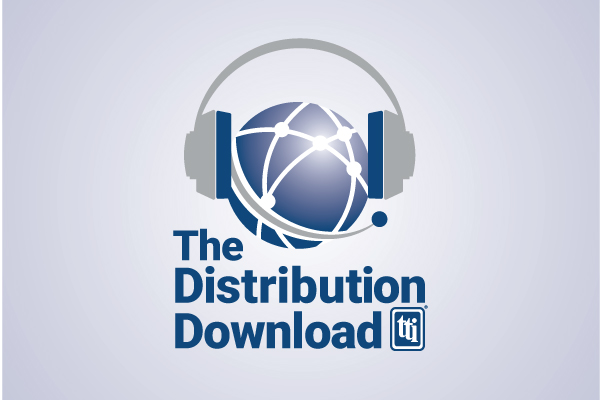Ask any business leader what they think of millennials and you’re likely to hear a mix of protest and praise regarding this newest generation in the workforce. Their energy, enthusiasm, and technological savvy work in their favor, but they are just as likely to be viewed as entitled and unfocused—looking to achieve the corner office job without paying the dues to get there.
A 2015 IBM Institute for Business Value (IBV) study debunked many of the myths about millennials, and others continue to examine the effect of this newest generation on the manufacturing supply chain. Managing today’s multigenerational workforce and making the most of millennials’ strengths are the greatest challenges, according to Paul St. Germain, wholesale distribution leader at IBM, who wrote about the issue as part of his upcoming work on Facing the Forces of Change: Navigating the Seas of Disruption, due out this November from the National Association of Wholesaler-Distributors.
St. Germain explains that millennials are more similar to the other generations in the workforce than is commonly portrayed, especially when it comes to career goals. Like most workers, millennials seek a challenging work environment with a clear growth path—and they are not as quick to jump ship for new opportunities as many of today’s business leaders may think. The IBV study showed that 74% of millennials had been with their present company for three years or more, for example—a statistic St. Germain says is common to those 35 or younger at any point in recent time.
Finding Similarities
A study of electronic components buyers revealed similar results. Global Purchasing’s 2015 Annual Salary and Profile Survey polled more than 700 purchasing professionals on a range of topics. (The 2016 study is due out in October). Although millennials represented a small percentage of those respondents, the results offer a glimpse at the newest generation of employees in the electronics supply channel.
Millennial buyers responding to the Global Purchasing survey reported having an average four years’ experience in the field and said they had been with their present company for an average of five years. What’s more, 96% of millennial buyers said they would recommend purchasing as a career for people entering the workforce—that compares to 88% of all respondents who said they would recommend the profession.
Finding the right work-life balance is another important topic to millennials. St. Germain points to this in his work, and it registered on the Global Purchasing survey as well. When asked to name the greatest challenges to staying current at work, 73% of millennials cited striking the right work-life balance as a major hurdle. The topic ranked first with the overall population, as well (59%).
Managing Differences
Once managers realize that millennials aren’t all that different from other generations, it becomes easier to tap into their strengths, St. Germain explains, adding that listening should be the first step in the process.
“Sit down and talk with them. Broaden your perspective,” he says. “You’ve got people who don’t have preset ideas about how things work—in your company and in your industry. A fresh set of eyes is one of the best things any new generation brings to the table.”
Of course, there are differences between the generations, but St. Germain says business leaders should view them as opportunities. Here are three areas supply professionals should focus on for success with millennials:
Technology—moving beyond skills. Technology is one of the greatest differentiators between generations, but millennials represent one of the biggest shifts in this area. They have grown up in a high-tech world and are comfortable not only with advancing technology, but with the fast-paced nature of its change. This comfort level can do more than simply help your company advance its social media and e-commerce goals. As St. Germain explains, it has given many millennials a greater ability to multi-task and has created in them a need for continual challenge—often mistaken for a lack of focus or a desire to move faster up the corporate ladder.
“Quite often, [millennials leave a job] because they’re not challenged,” St. Germain explains. “They are better at multi-tasking because of technology and the fast-paced world they grew up in, so you’ve got to keep them engaged.”
Relationships—still important. One of the most interesting findings in his research, St. Germain says, is that relationships are important to millennials. A common belief is that millennials put less value on interpersonal relationships in business, largely because of their tendency to communicate via electronic device rather than in person. But the difference is in the method, not the desire for communication. St. Germain says his work shows that when millennials research B2B products and services, for example, they prefer direct contact with their vendors. This matches up nicely with their baby boomer counterparts, who said they prefer to interact with vendors at trade shows and conferences when seeking new information. The outlier is Generation X—the generation between the baby boomers and millennials—who said they prefer to first consult blogs and industry articles when it comes to researching B2B products and services.
“It’s true that the value of relationships [in business] is going down, but it’s still important—and relationships are very important to millennials,” St. Germain says. “Communication methods are probably the biggest change, but people are still communicating—just in different ways.”
Branding—always a challenge. Perhaps the greatest challenge with the millennial generation is attracting and retaining them. This is especially important in certain segments of the manufacturing supply chain that are largely unknown in the consumer market—distribution comes to mind. Developing a company’s brand takes on new meaning in this environment, and St. Germain says he’s found examples of companies stepping outside the box to develop new recruiting techniques, in particular. Forming relationships with local schools and colleges and using millennial employees in recruitment efforts (at job fairs and other outreach opportunities) are some ways companies are building their brands. One enterprising firm St. Germain interviewed is using an RV at campus recruiting events, creating a tailgate-like experience to engage prospective hires.
“[Distribution companies], especially, can be very flat organizations, so the opportunity to advance is good—it often happens early in a distribution career,” says St. Germain, emphasizing the appeal to millennial workers. “That is something we don’t get the word out on well enough.”

